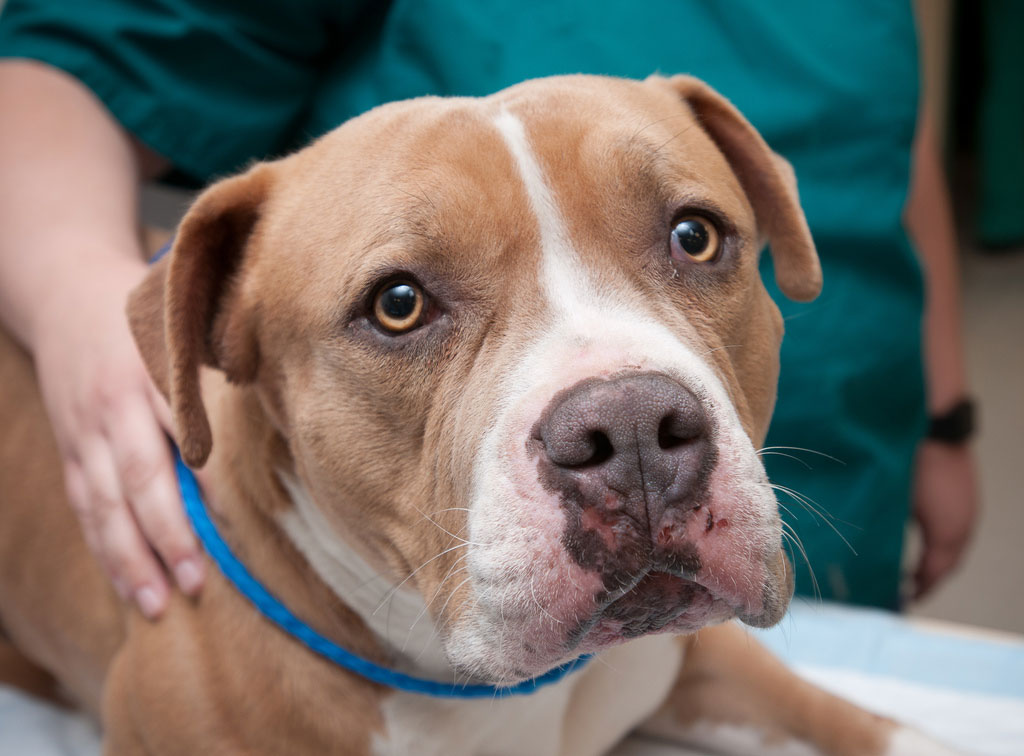 Saving Shelter Animals
Saving Shelter Animals
The Koret Shelter Medicine Program aims to improve the quality of life for animals in shelters. The program, a major component of the CCAH, advances the specialty of shelter medicine through health and behavior studies, education of veterinary professionals and veterinary service to shelters. The program has transformed how shelters are built, operate and respond to disease outbreaks. Since the program began in 2001, our experts have:
- Raised awareness of the need to approach the health and behavior issues of shelter animals through improvements in veterinary preventive medicine and management of disease
- Helped shelters stop disease outbreaks and designed better facilities
- Participated in numerous studies to reduce infections in shelter cats and dogs
- Trained veterinary residents in this specialty
Vibrant collaboration
The shelter medicine team created an innovative partnership with a public, municipal shelter in Yolo County for student training and shelter animal care. Koret clinicians provide medical care to the shelter, and UC Davis veterinary medicine students participate in the shelter’s spay/neuter surgeries, the treatment of sick and injured animals, and the provision of full medical assessments for animals, thereby gaining critical experience in how a high-quality shelter medicine program operates. Our clinicians have helped implement programs and protocols (including a Daily Health Monitoring Program staffed by UC Davis Animal Sciences undergraduate interns) that resulted in the shelter having an average live release rate of 90 percent in 2013. This ranks Yolo County Animal Services among the highest-performing shelters in California in terms of positive animal outcomes.
Benefitting students and animals
Through elective coursework, lectures in the core curriculum and clinical rotations, faculty have trained hundreds of students to become the shelter medicine providers of the future. More than twice as many UC Davis graduates are working in shelters than graduates of the next leading institution. Faculty co-chaired national committees to perform a detailed job task analysis and develop a curriculum for shelter medicine residency training. This has been used as the basis for residency training programs at multiple institutions in the U.S. and abroad.
Continuing education
Veterinary faculty within our program have delivered hundreds of continuing education presentations to the public, shelter professionals, veterinary technicians, veterinarians and others.
Saving lives and money
Our veterinary faculty, in partnership with the University of Florida Maddie’s Shelter Medicine Program, created the Million Cat Challenge to help shelters reduce euthanasia of cats in North American animal shelters. The campaign’s target is to save one million cats by 2019.
Reducing death from disease
Shelter clinicians discovered a novel strain of virulent calicivirus in cats, and provided the first published documentation of a major outbreak of hemorrhagic Streptococcus zooepidemicus in shelter dogs. Both discoveries produced immediate practical impacts, resulting in successful management of subsequent outbreaks, greatly reducing the morbidity and mortality caused by these two infections.
Consultation services
In 2007, the program became the first veterinary group to offer shelter consultation services. Clients include shelters that house a few hundred to those sheltering more than 50,000 animals per year. Our services have been used by municipalities, private foundations, veterinary hospitals and boarding facilities. Veterinary faculty have performed site consultations with over 50 organizations, caring for 500,000 animals annually; and now also offers help in facility design of shelters to improve the quality of life and help avoid the spread of infectious disease.
Academic program support
The high regard for our school has encouraged other universities to incorporate shelter medicine training into their academic programs. Koret faculty have consulted closely with faculty and administration at 18 U.S. veterinary colleges, along with those in the United Kingdom, Japan, Australia and the Netherlands. The majority of veterinary schools in the U.S. now offer clinical and/or didactic coursework in shelter medicine.
Vital shelter medicine resources created
Our faculty have co-authored textbooks and guidelines, including the Association of Shelter Veterinarian’s "Guidelines for Standards of Care in Animal Shelters," which represents the first published guidelines on the subject matter. It has been translated into multiple languages.
